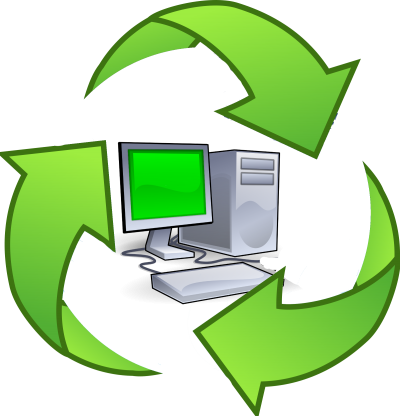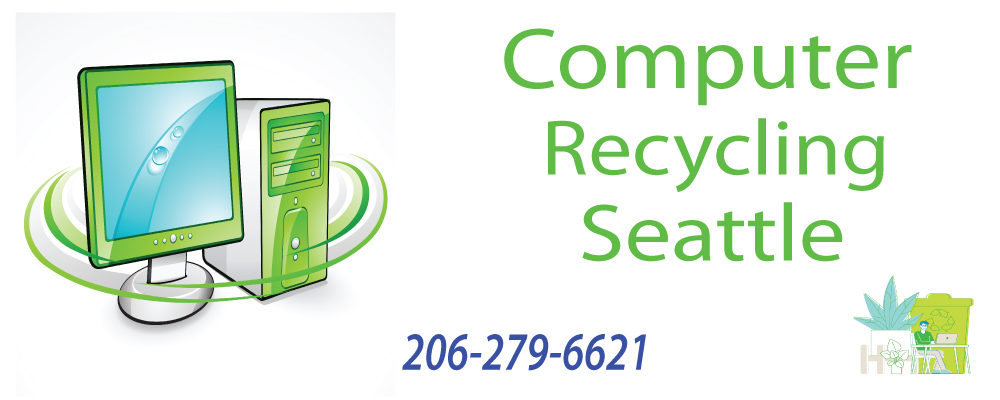Secure Disposal: The ABCs of Computer Recycling
Secure Disposal: The ABCs of Computer Recycling
Blog Article
Lasting IT Solutions: Trustworthy Computer System Recycling Provider
In light of this, the demand for trustworthy computer system recycling solutions has never been more extremely important. In this discussion, we will check out the ecological effect of e-waste, the advantages of liable computer recycling, just how to select a credible recycling solution, the reusing procedure for computers and digital devices, and the function of government guidelines in e-waste administration.
The Environmental Impact of E-Waste
The inappropriate disposal of digital waste, commonly called e-waste, has significant ecological implications. E-waste describes disposed of digital tools such as smart devices, computers, and televisions (computer recycling). These devices include unsafe materials such as lead, mercury, cadmium, and brominated flame retardants, which can be hazardous to both human health and the setting if not correctly managed
When e-waste is poorly disposed of, it frequently winds up in landfills or is blazed, launching hazardous compounds into the air, water, and soil. The launch of these dangerous products can infect groundwater, pollute the air, and add to soil destruction, presenting major wellness dangers to nearby neighborhoods and ecosystems.
Moreover, the improper disposal of e-waste also adds to the exhaustion of natural deposits. computer recycling. If effectively recycled, numerous electronic tools include beneficial metals like gold, silver, and copper that can be recuperated and reused. Nevertheless, when e-waste is not recycled, these important sources are shed, and the demand for new basic materials rises, resulting in increased mining activities and more ecological destruction.
To mitigate the environmental impact of e-waste, appropriate recycling and disposal techniques should be employed. This includes the liable collection, dismantling, and recycling of digital tools to recoup valuable materials and make sure the risk-free management of hazardous compounds. Applying effective e-waste monitoring practices is critical to safeguard the atmosphere, conserve resources, and promote a sustainable future.

Advantages of Accountable Computer System Recycling
Correctly reusing computer systems supplies a multitude of advantages, consisting of environmental preservation and source preservation. Liable computer system reusing not only assists prevent digital waste from winding up in garbage dumps, but it likewise lowers the need for resources and energy in the production of new devices.
Among one of the most considerable advantages of accountable computer system recycling is the preservation of the setting. When electronic waste is improperly thrown away, it can launch dangerous compounds such as lead, mercury, and cadmium into the dirt and water, posturing a danger to ecological communities and human wellness. By recycling computer systems, these harmful products can be securely extracted and gotten rid of, minimizing the risk of contamination.
An additional benefit is source preservation. Computer systems include useful products like gold, copper, silver, and light weight aluminum, which can be recovered and reused with recycling procedures. By extracting and reusing these products, the demand for extracting brand-new resources is decreased, conserving natural sources and minimizing the environmental impact of source removal.
Furthermore, accountable computer system recycling aids to decrease power usage. Production new computer systems calls for a considerable amount of power, from the removal of raw products to the setting up process. By reusing computers and recycling their elements, the energy-intensive production procedure can be prevented, resulting in a decrease in greenhouse gas emissions and a more sustainable use of power sources.
How to Choose a Trustworthy Computer System Recycling Solution
When picking a computer reusing service, it is essential to take into consideration a couple of key aspects to ensure that you pick a trustworthy and reputable provider. First of all, it is essential to verify if the reusing service follows appropriate environmental policies and techniques. A credible provider will certainly have qualifications and accreditations that demonstrate their dedication to responsible recycling. Seek accreditations such as R2 (Responsible Recycling) or e-Stewards, which make certain that the recycling procedure satisfies strict criteria for environmental management and data protection. Secondly, examine if the service supplies safe data devastation. Data security is an important worry when reusing computers, as delicate information kept on old tools can be prone to theft or misuse. A reliable recycling service must have secure data devastation protocols in position, such as information cleaning or physical destruction of storage tools. In addition, think about the solution's track document and reputation. Search for evaluations or testimonials from previous customers to assess their degree of consumer contentment and dependability. Last but not least, consider the service's transparency and responsibility. A reliable service provider should be able to supply thorough details concerning their reusing procedure, consisting of how they handle dangerous materials and guarantee appropriate disposal. By thinking about these aspects, you can select a computer system recycling solution that is honest, dependable, and ecologically responsible.
The Recycling Process for Computer Systems and Digital Devices
To make certain accountable disposal and reduce ecological effect, understanding the reusing procedure for computer systems and digital devices is crucial when choosing a trustworthy recycling solution. The reusing procedure for these gadgets usually includes several phases.
Firstly, the tools are gathered from people, companies, or drop-off factors. This collection process might entail transportation logistics and secure managing to protect the delicate information included within the tools. Once accumulated, the devices are sorted based upon their type, such as smart devices, laptops, or desktops.
After sorting, the tools undergo a detailed data damage procedure to ensure that any sensitive or personal information is completely erased. This action is crucial to safeguard the personal privacy and safety of organizations and people. Data damage techniques might consist of cleaning, degaussing, or physical devastation of the storage space media.
Following, the tools are dismantled click resources right into their specific parts. This allows for the splitting up of various materials, such as plastics, metals, and circuit card. These products are after that sent out to specialized recycling facilities for more handling.
The recycling centers utilize different methods to draw out important materials from the electronic waste. These materials can be recycled or repurposed in the production of new products. The remaining waste is gotten rid of in an ecologically accountable manner, adhering to governing standards.
The Function of Government Regulations in E-Waste Monitoring
Federal government guidelines play a vital function in the effective management of e-waste. With the continual development of the electronics sector and the raising worry for environmental sustainability, the need for correct disposal and recycling of digital waste has come to be extra evident. Government guidelines assist to guarantee that e-waste is managed in a lasting and liable way.
One of the key duties of government regulations is to establish requirements and standards go to the website for e-waste administration. These policies specify the appropriate techniques for collection, transportation, and recycling of digital waste. By establishing these criteria, governments can ensure that e-waste is taken care check here of in such a way that decreases its influence on the setting and human health and wellness.
This includes carrying out take-back programs, where suppliers are responsible for collecting and recycling electronic waste from customers. These laws help to shift the concern of e-waste monitoring from the specific customer to the market, making sure that digital waste is taken care of in an extra lasting fashion.

Final Thought
In final thought, it is critical to consider the environmental impact of e-waste and choose a reliable computer system reusing solution to responsibly get rid of digital gadgets. By complying with federal government guidelines and participating in appropriate recycling processes, we can reduce the negative effects of e-waste on the environment and advertise an extra lasting future.
In this conversation, we will certainly discover the ecological influence of e-waste, the benefits of liable computer system recycling, exactly how to choose a trustworthy recycling solution, the reusing process for computers and electronic tools, and the function of government policies in e-waste management. Computer systems have useful materials like gold, light weight aluminum, silver, and copper, which can be recovered and recycled with reusing procedures.Additionally, responsible computer system recycling helps to minimize energy intake. Data safety and security is a crucial problem when reusing computers, as delicate information saved on old gadgets can be susceptible to theft or misuse. By thinking about these factors, you can pick a computer system reusing solution that is ethical, dependable, and ecologically responsible.
Report this page